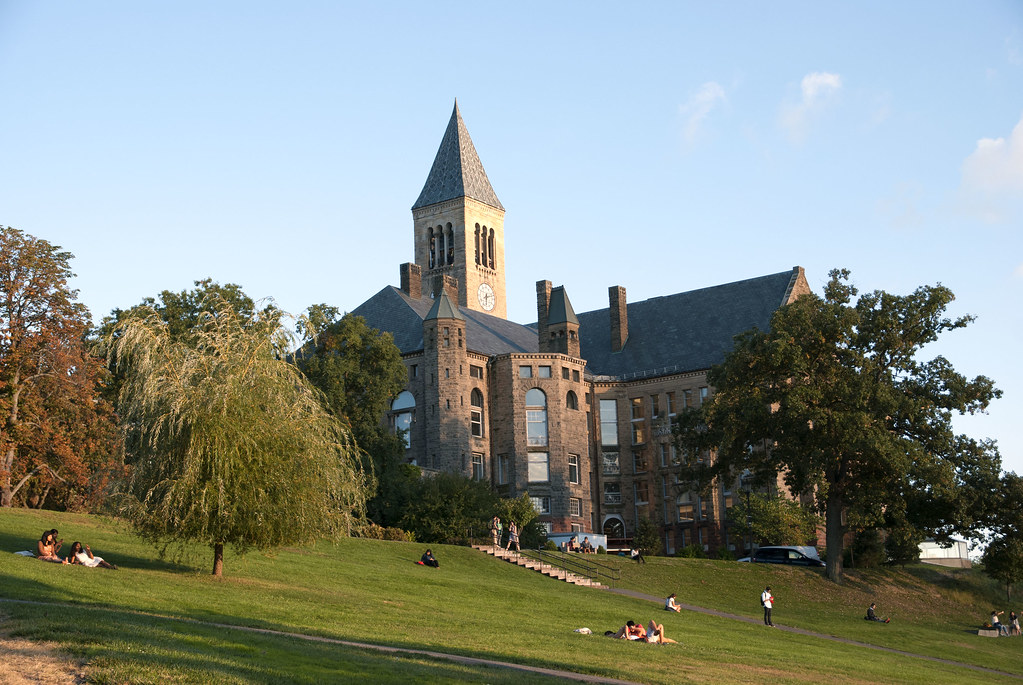U.S. President Donald Trump has continued his controversial policy of freezing federal funding for top U.S. universities, including Northwestern University and Cornell University, citing their failure to comply with his administration’s demands for conservative values on campus. Located in Evanston, Illinois, Northwestern has had $790 million in federal funds frozen, while Cornell, in Ithaca, New York, is facing a freeze of $1 billion. These actions are part of Trump’s ongoing campaign to influence higher education institutions, insisting that they align with what he perceives as conservative principles.
Last month, the U.S. Department of Education issued letters to 60 higher education institutions—including Cornell and Northwestern. According to AP News, these letters warned them about “potential enforcement actions if they do not fulfill their obligations [federally] to protect Jewish students on campus, including uninterrupted access to campus facilities and educational opportunities.”
Both universities are renowned for their academic excellence—Northwestern for its prestigious engineering and communications programs, and Cornell for its top-tier agricultural school and respected business and law departments.
The funding freeze reflects a broader trend in which Trump has targeted universities he claims are promoting a “liberal agenda.” Earlier this year, similar freezes were imposed on several other institutions, drawing widespread criticism from educators, students, and political leaders. At Cornell, the freeze has already triggered more than 75 work stoppages issued by the Department of Defense, halting critical research efforts in areas such as national security, cybersecurity, and beyond, as reported by Politico. The same source reported that Cornell’s President Michael Kotlikoff expressed his concerns: “We are actively seeking information from federal officials to learn more about the basis for these decisions.”
Northwestern has also voiced alarm over the funding freeze, noting that it has yet to receive official notification from the federal government. The university emphasized that federal support fuels vital, life-saving research, including medical technology and disease treatment developments. According to SRN News, university spokesperson Jon Yates said, “Federal funds that Northwestern receives drive innovative and life-saving research, like the recent development by Northwestern researchers of the world’s smallest pacemaker, and research fueling the fight against Alzheimer’s disease. This type of research is now in jeopardy.”
Last year, Northwestern President Michael Schill testified before Congress, reaffirming his “commitment to making Jewish students, faculty and staff feel comfortable around Northwestern’s campus,” The Chicago Tribune reported.
Cornell University also expressed its disapproval. “Universities, despite rapidly escalating political, legal and financial risks, cannot afford to cede the space of public discourse and the free exchange of ideas,” President Michael Kotlikoff said in a statement, according to The Guardian. “Our colleges and universities are cradles of democracy and bulwarks against autocracy.”
The situation continues to unfold, with both universities pledging to challenge the funding freezes through legal channels. As noted by CNN, they argue that withholding federal funds infringes upon their constitutional rights to operate independently of political influence. Legal experts anticipate the dispute could result in a prolonged court battle over the scope of executive power in the realm of higher education.
At present, it remains unclear whether these actions will have a lasting impact on the landscape of higher education. However, they have undeniably reignited debate over the federal government’s role in regulating universities. The controversy is expected to intensify as other institutions watch closely to see whether the precedent set by Trump will shape future administration policies regarding federal funding for higher education.














